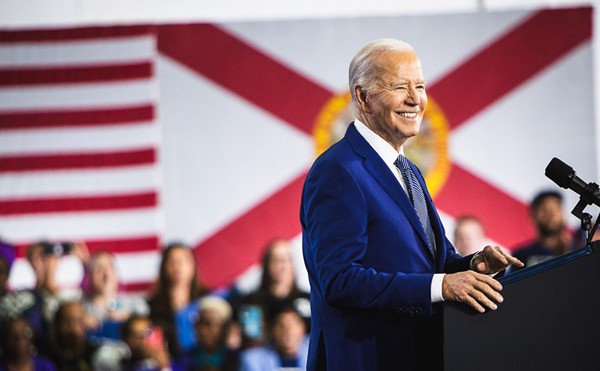The story begins in 1875, at a time when the British Empire and its armies occupied a full quarter of the planet. That inescapable fact is implicit in all of the many versions of The Four Feathers, but Kapur's movie brings the problematic colonialist aspect right up to the surface, where it's rubbed repeatedly in our faces.
Putting its cards on the table from the beginning, the film opens with a contradiction: the sound of a distinctly non-Western singer — possibly Indian or Pakistani, employing a modal scale typically associated with Arab or Islamic song — combined with the incongruous image of a particularly brutal rugby match in progress. As the singer wails away in some language we don't understand, the mournful, almost spiritual lyricism of his voice stands in succinct contrast with the sight of the Anglo athletes going at each other tooth and nail. The irony is further compounded by the genteel English crowd sipping tea and crocheting as they watch the bloody spectacle play out in front of them.
This is a Four Feathers with a political agenda, although, thankfully, it rarely gets in the way of the story.
Heath Ledger and Wes Bentley, two of our current big screen heartthrobs who also happen to possess actual acting chops, play young British soldiers Harry and Jack. They're best friends who also happen to be in love with the same woman (Kate Hudson, who despite what you'd think from the way the film's being marketed, doesn't really have much to do here). Despite being a ranking officer's son and a seemingly perfect soldier's soldier, Harry is apparently plagued by doubts about the whole notion of combat (doubts that the movie never really clarifies). We only become aware of these doubts, in fact, when a British outpost in the Sudan is attacked and slaughtered by "Mohammedan fanatics," and Harry is revealed to be reluctant to join his comrades marching eagerly into battle against the "heretics." After some brief but intense soul-searching, Harry shocks everyone by resigning his commission.
Harry is immediately branded a coward by his peers and given the titular feathers that traditionally symbolize and seal his shame. Unable to live with himself, Harry decides to follow his former friends to the Sudan where, wrapped in robes, bearded, burnt by the sun and traveling incognito, he bears his feathery cross as he tracks his comrades in hopes of somehow redeeming himself. Harry's sojourn through the desert often seems straight out of a Paul Bowles story, complete with a nearly constant sense of exotic danger and enigmatic mystery that contributes to this being the darkest and most complex Four Feathers yet. It's also the most explicit — besides the obligatory, massive battle sequences, the movie contains a bit of sex, some fairly graphic violence, and even a shot or two of dogs feasting on human corpses. At one point during his long desert odyssey, a starving Harry even gashes open his scrawny camel's side to sip blood from the wound.
When Harry finally hooks up with his countrymen, it's never quite clear what he plans to do, and the movie loses focus. As Harry, still incognito, attempts to prove himself to his former pals during the final third of the film, the movie seems to unravel into a series of loosely connected sequences — a long detour in a hellish Muslim prison, a rushed and unsatisfying reunion between Jack and Harry. None of these sequences segue particularly smoothly enough into one another, almost as if a key scene or two were missing.
As in Kapur's previous Hollywood outing, Elizabeth, the movie is beautifully appointed, from its sets and costumes to its visual style. Despite the smattering of flaws in the film's approach, the juicy, time-honored narrative of The Four Feathers is well suited to Kapur, a director whose style was forged in the overheated melting pot of India's Bollywood film industry. In that context, the movie's somewhat overwrought tale of heroism, mistaken identity, betrayal, blindness (literally) and redemption makes perfect sense. At times, the narrative borders on the hysterical, but it never quite veers into camp.
In the end, what really sets the film apart from the rest of the Feathers crowd is the political slant it wears on its sleeve much of the time. Even though individual Brits are portrayed as brave, smart and heroic, there's an overriding sense here that what the British actions in the Sudan mostly amounted to was classic imperialism — an arrogant, self-defeating and misdirected perversion of heroism and honor.
The movie is sometimes a bit too obvious in providing periodic reminders of this, and unsubtle ironies abound. You can be sure that whenever we hear the British mantra branding the Islamic armies as "fanatics," it's sure to be followed by a proclamation by the vicar affirming that Britain's mission is a holy one ordained by God himself. The movie all but pokes us in the ribs at moments like this, demanding, "So just who are the real religious fanatics here? Get it?"
A lot of what we see and hear in the movie eerily parallels our present moment, and at least some of the parallels seem deliberate. (As Harry deteriorates in the desert, he even winds up looking a little too close for comfort like John Walker Lindh, but that's probably just me projecting). The film's most unsettling moment, though, features an Arab assassin who picks off human targets and then hides in a home filled with women and children, daring the infidels to come and get him. The movie turns the killer into something of a noble figure, making a grand show of the gunman stoically standing his ground while sacrificing himself to the death of a "martyr."
The scene inevitably smacks of that unfortunate modern tendency to confuse certain terrorists (particularly the ones with good PR firms) with "freedom fighters". As a pivotal moment for a movie, it's more than a little creepy, and it's unfortunate that it lingers in the mind long after many of The Four Feathers' better moments have been forgotten.
Lance Goldenberg can be reached at [email protected] or 813-248-8888, ext. 157.















